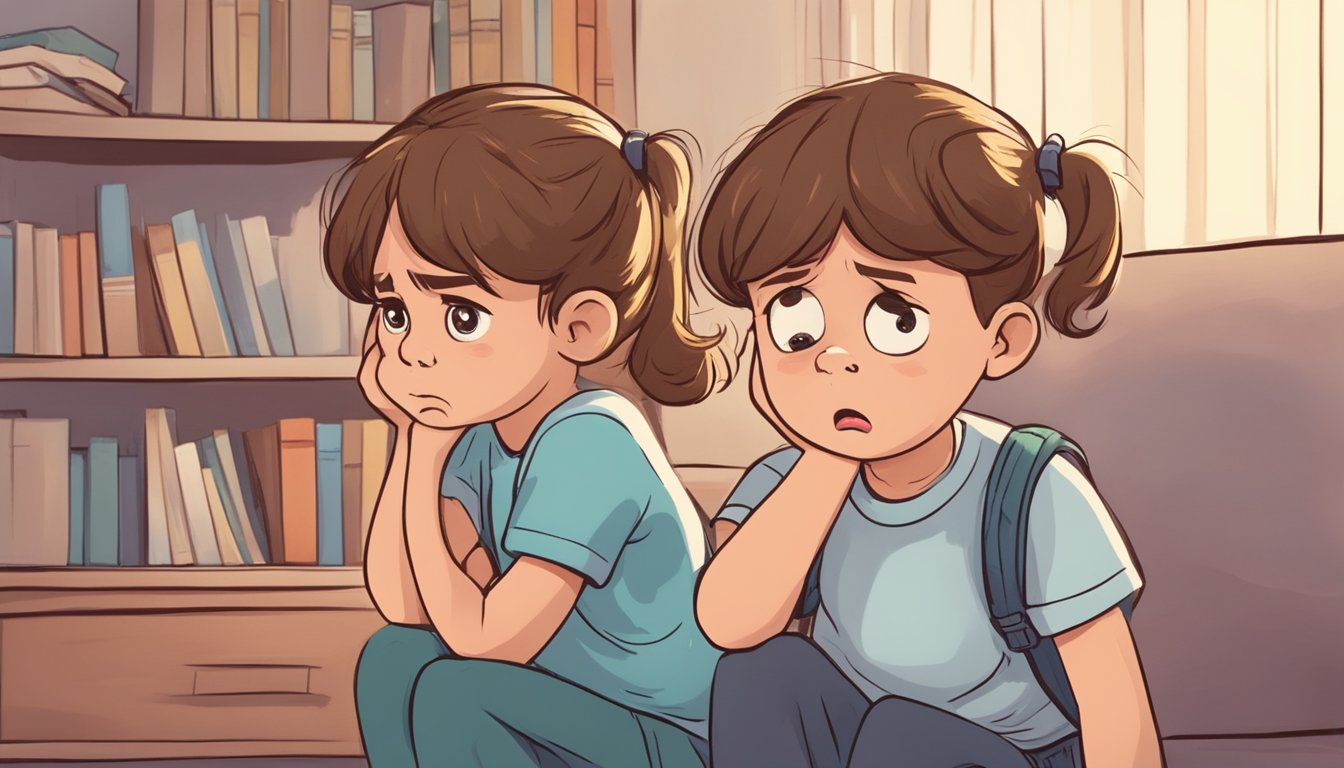It’s natural to turn to your mother when you’re feeling upset or overwhelmed. After all, mothers are often seen as nurturing and comforting figures. However, sometimes when you cry, your mom may react in a way that’s unexpected or even hurtful. You may be left wondering, “Why does my mom get mad when I cry?”

Understanding emotions and how to navigate them can be challenging for both parents and children. It’s important to recognize that everyone experiences emotions differently, and it’s normal to have a range of feelings. However, when it comes to parental reactions, it’s essential to understand how they can impact a child’s emotional development. In this article, we’ll explore why your mom might get mad when you cry and provide tips on how to navigate emotional responses.
Key Takeaways
- Understanding emotions and how to navigate them can be challenging for both parents and children.
- It’s important to recognize that everyone experiences emotions differently, and it’s normal to have a range of feelings.
- When it comes to parental reactions, it’s essential to understand how they can impact a child’s emotional development.
Understanding Emotions

As you try to understand why your mom gets mad when you cry, it’s important to first explore the role of emotions in our lives. Emotions are a natural part of being human and they serve several purposes, including communicating our needs and desires, helping us make decisions, and providing us with feedback about our experiences.
The Role of Empathy
Empathy is the ability to understand and share the feelings of others. It’s an important component of emotional intelligence and helps us connect with others on a deeper level. When we’re able to empathize with someone, we can better understand their perspective and respond in a way that’s supportive and helpful.
However, some people struggle with empathy, particularly when it comes to intense emotions like sadness or anger. Your mom may have difficulty empathizing with you when you cry, which could make her feel uncomfortable or frustrated. It’s possible that she doesn’t know how to respond to your emotions in a way that feels supportive or helpful, which could be why she reacts with anger.
The Impact of Stress
Stress can also play a role in how we handle emotions. When we’re stressed, our ability to regulate our emotions can be compromised, making it more difficult to respond calmly and rationally to emotional situations. Your mom may be experiencing stress in her own life, which could be contributing to her reaction when you cry.
It’s also worth noting that some people have a lower tolerance for emotional distress than others. Your mom may be someone who struggles to handle intense emotions, which could make it difficult for her to respond in a supportive way when you’re upset.
Overall, understanding the role of empathy and the impact of stress on our emotional responses can help you better understand why your mom gets mad when you cry. It’s important to remember that everyone has their own unique way of handling emotions, and it may take some time and effort to find a way to communicate effectively with your mom about your feelings.
Parental Reactions

When a child cries, it’s natural for parents to want to comfort them. However, some parents may react negatively to their child’s tears. This can be confusing and upsetting for the child. Here are two possible reasons why your mom might get mad when you cry:
Anger as a Defense Mechanism
Anger can be a defense mechanism used to protect against feelings of vulnerability or powerlessness. When a child cries, it can trigger uncomfortable emotions in the parent, such as guilt or helplessness. In response, the parent may become defensive and lash out in anger. This is not a healthy or productive way to deal with emotions, but it can be a common response.
Misinterpretation of Crying
Some parents may misinterpret their child’s crying as a sign of weakness or manipulation. They may believe that crying is a sign that the child is not coping well or is trying to get attention. This can lead to frustration and anger towards the child. However, crying is a natural and healthy way to express emotions, and it’s important for parents to recognize and validate their child’s feelings.
It’s important to remember that your mom’s reaction to your crying is not your fault. It’s possible that she is struggling with her own emotions or past experiences. However, it’s important for parents to provide emotional support and comfort for their children. If your mom’s reaction to your crying is causing you distress, it may be helpful to talk to a trusted adult or seek professional support.
Navigating Emotional Responses

When it comes to expressing emotions, it can be challenging to navigate the responses of others, especially when it comes to crying. It’s essential to understand that people have different ways of processing and expressing emotions, and it’s crucial to respect those differences. Here are some healthy ways of expressing emotion and building emotional intelligence.
Healthy Ways of Expressing Emotion
It’s essential to find healthy ways of expressing emotions, such as talking to someone you trust, writing in a journal, or engaging in physical activity. These activities can help you process your emotions in a healthy way, which can help you manage your emotions better in the future.
Building Emotional Intelligence
Emotional intelligence is the ability to recognize, understand, and manage one’s emotions and the emotions of others. It’s a crucial skill to have, and it’s something that can be developed over time. Here are some ways to build emotional intelligence:
- Practice mindfulness: Mindfulness is the practice of being present in the moment and aware of your thoughts and feelings. It can help you become more aware of your emotions and how they affect you.
- Learn to communicate effectively: Effective communication is essential in building emotional intelligence. Learning to express your emotions clearly and effectively can help you better understand and manage your emotions.
- Seek feedback: Asking for feedback from others can help you gain insight into how you come across to others and how you can improve your emotional intelligence.
By developing healthy ways of expressing emotions and building emotional intelligence, you can better navigate emotional responses, including those of your mother when you cry. Remember that everyone processes emotions differently, and it’s essential to respect those differences while also taking care of your emotional well-being.
Frequently Asked Questions

Why do parents get mad when their children cry?
Parents may get mad when their children cry because they may feel frustrated or helpless in understanding what their child needs or wants. They may also feel overwhelmed by the situation and not know how to respond appropriately. It is important to remember that parents are human and may not always respond perfectly in every situation.
Is it bad to tell your child to stop crying?
Telling your child to stop crying may not be the most effective way to address their emotions. Crying is a natural response to sadness, frustration, or other intense emotions, and it is important for children to learn how to express their feelings in a healthy way. Instead of telling your child to stop crying, try to validate their emotions and help them find ways to cope with their feelings.
Why does my mom get mad at me for no reason?
It is possible that your mom may not be getting mad at you for no reason, but rather because she is feeling stressed, overwhelmed, or frustrated about something else. It is important to communicate with your mom and try to understand what may be causing her to react in this way. It may also be helpful to seek the support of a trusted friend, family member, or counselor.
Why does my mom get mad so easily?
There may be many reasons why your mom gets mad easily, such as stress, anxiety, or other underlying mental health issues. It is important to approach the situation with empathy and understanding, and to communicate openly with your mom about how her behavior is affecting you. Seeking the support of a professional counselor may also be helpful in addressing these issues.
Why does my mom get mad when I tell her how I feel?
It is possible that your mom may feel defensive or threatened when you express your feelings to her, especially if she does not agree with your perspective. It is important to approach the situation with empathy and understanding, and to communicate your feelings in a calm and respectful manner. It may also be helpful to seek the support of a counselor or mediator to facilitate communication between you and your mom.
Why do I cry when my mom yells at me?
Crying is a natural response to feeling overwhelmed, scared, or upset. If your mom yells at you, it may trigger these emotions and cause you to cry. It is important to communicate with your mom about how her behavior is affecting you, and to seek the support of a trusted friend, family member, or counselor to help you cope with these feelings.
